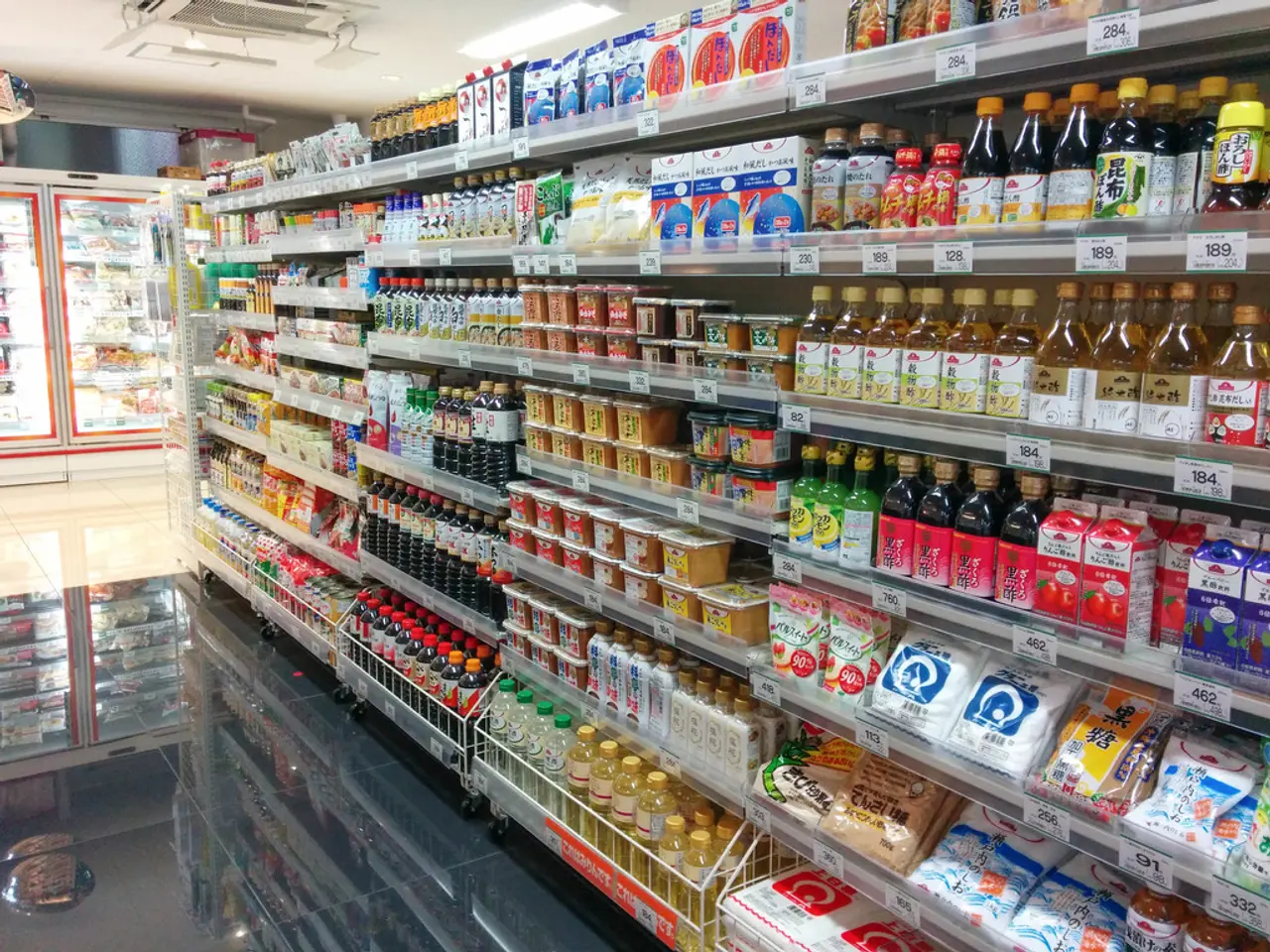Exploring International Trade: Perspectives from Gene Seroka, Head of Port of Los Angeles
=====================================================================================
The global trade landscape is facing a significant slowdown, as highlighted by Gene Seroka, Executive Director of the Port of Los Angeles. This slowdown, driven by a decline in import volume and high tariffs on goods from China, is causing ripples throughout the global economy.
The immediate impact is being felt by the trucking industry, with fewer containers being hauled. Dock workers may also face reduced shifts and job opportunities due to the slowdown in trade. Retailers are bracing for the impact, and they may need to pass on increased costs to consumers.
The decline in import volume is a global phenomenon, affecting trade routes from China, Mexico, and Canada. This contraction creates ripple effects in supply chains across Asia and Europe, impacting multinational companies and commodity exporters, particularly those dependent on China as a key buyer, such as Australia and Chile.
High tariffs, particularly between the US and China, suppress bilateral trade growth and contribute to economic drag. J.P. Morgan Global Research notes that these tariffs have lowered China’s 2025 growth forecast by 0.2 percentage points and similarly downgraded growth outside North America. The tariffs induce inflationary pressures in the US while contributing to deflationary trends in China, further complicating global trade and economic conditions.
The global economy sees a persistent decline in trade as a share of GDP, from 57% in 2024 to a projected 53% by 2030. This trend, confirmed by IMF analysis, signals a long-term structural shift away from globalization and trade openness, with potential output losses and less efficient supply chains.
Deflationary pressures in China, combined with tariff-driven inflation in importing countries, create divergent economic conditions. Consumers abroad may benefit from cheaper Chinese goods, but this signals excess capacity and weak demand from the Chinese side, raising concerns about longer-term growth sustainability and commodity market volatility.
Supply chain realignments are occurring, with some manufacturing and export activity shifting to countries like Vietnam and Mexico that benefit from trade diversion away from China. While this creates new opportunities, it also adds complexity and transition costs to global supply networks.
In summary, the decline in Chinese imports and tariffication are contributing to a slowing global economy and trade volumes, heightened macroeconomic uncertainty, and reconfiguration of global supply chains. The persistence or escalation of high tariffs beyond temporary pauses risks further dampening growth. The situation demands close monitoring as these trends influence commodity markets, investment flows, inflation dynamics, and global GDP growth into the coming years.
The timeline provided by Gene Seroka aligns with crucial retail periods, emphasizing the urgency of a resolution. This timeline is critical as it aligns with the spring and summer fashion seasons and the back-to-school period, which are vital for retailers and the economy. The CEOs of Walmart, Target, and Home Depot recently met with President Donald Trump to warn about potential empty store shelves within weeks due to high tariffs on China.
Staying informed and prepared for the challenges ahead is essential as the global economy is at a crossroads, and the decisions made in the coming weeks will shape the future of trade and economic stability. The uncertainty is not just about China; it's a worldwide issue. The slowdown in trade may lead to a pause in hiring and capital investment, and the potential long-term effects on the global economy are significant. The need for a quick resolution is urgent to avoid potential shortages on store shelves and to ensure a more stable global economic future.
- The high tariffs on goods from China, coupled with the decline in global trade, may lead to increased costs for businesses in the logistics and supply chain sector, making it difficult for some companies to maintain their operations.
- As a result of the slowdown in global trade, there could be a significant shift in the supply chain, with some multinational companies relocating their manufacturing and export activities to countries like Vietnam and Mexico to avoid tariffs.
- Experts warn that the persistent high tariffs could further reduce trade volumes, contribute to macroeconomic uncertainty, and potentially lead to less efficient supply chains, inflationary pressures, and commodity market volatility, affecting global GDP growth in the coming years.




